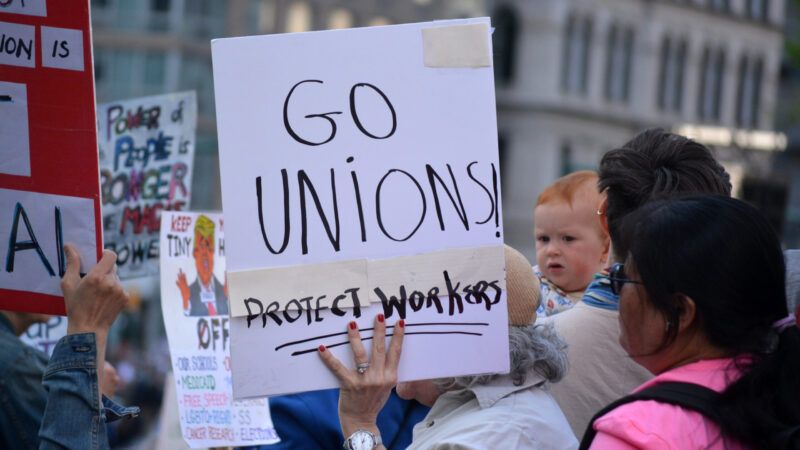Utah's New Union Law Faces a Ballot Box Battle
Lawmakers passed sweeping limits on public sector union power, but opponents have gathered record-breaking signatures to attempt to overturn it in 2026.

In 2011, then–Wisconsin Gov. Scott Walker made national headlines by signing Act 10 into law, dramatically curbing public sector unions collective bargaining power. Seven years later, the landmark U.S. Supreme Court case Janus v. AFSCME cemented right-to-work protections for public sector employees nationwide. Now, another seven years on, Utah has joined the fight with a sweeping new reform.
Earlier this year, the Utah legislature passed House Bill 267, which bans public sector collective bargaining—the process that allows unions to negotiate on behalf of all workers in a unit, including nonmembers. The law also ended the practice of "release time" (where public employees could do union business on the taxpayer's dime), tightened reporting requirements to give workers more transparency on union spending, and offered a nonunion option for professional liability insurance.
The legislation didn't appear overnight. The bill's sponsor, Rep. Jordan Teuscher (R–South Jordan), spent years pushing smaller union reforms before concluding there was room for a broader deal that both union and non-union interests could support.
But after unions, in Teuscher's telling, continually reneged on agreements, lawmakers advanced a comprehensive package without their support. (Union leaders deny they broke any promises.)
The unions may have lost in the legislature, but they're taking the fight to the ballot box. The Utah Education Association's "Protect Utah Workers" campaign collected more than 320,000 signatures—the most signatures of any ballot petition in state history—to place a repeal measure on the November 2026 ballot.
Adding to the confusion, Republican Gov. Spencer Cox, who signed the bill into law, has since distanced himself from it, saying, "I sign lots of bills I don't like for lots of different reasons." Now, defenders of the bill are scrambling to defend the reform without the governor's help.
Much of the fight may hinge on clarifying what the law actually does: It doesn't ban unions, it just strips them of collective bargaining power.
Utah's reforms are a step in the right direction, and Cox's timidity in defending the law, which gives workers more choice by ending union monopolies over representation is misguided. As the Mackinac Center for Public Policy put it: "The difference now is that public sector unions will no longer have a monopoly in representing government employees, including those who might not want the representation in the first place."
Utah's approach stands out at a moment when some populist conservatives are cozying up to organized labor—seen most prominently in Sen. Josh Hawley (R–Mo.) coming out against right-to-work, and Teamsters Union President Sean O'Brien speaking at the 2024 Republican National Convention.
For those on the policy right, the task isn't just defending H.B. 267; it's making a clear case for being pro-worker without being pro-union. There are numerous worker-friendly policies that market-oriented supporters can get behind, such as protecting independent contracting in the gig economy, defending tipped wage occupations from progressive attacks, and supporting portable benefits that allow workers to move more freely from job to job. All these policies prioritize worker flexibility and autonomy and are exactly the sort of labor policies that free marketers should be championing.
H.B. 267 is an important piece of that agenda. But it shouldn't be the last.
